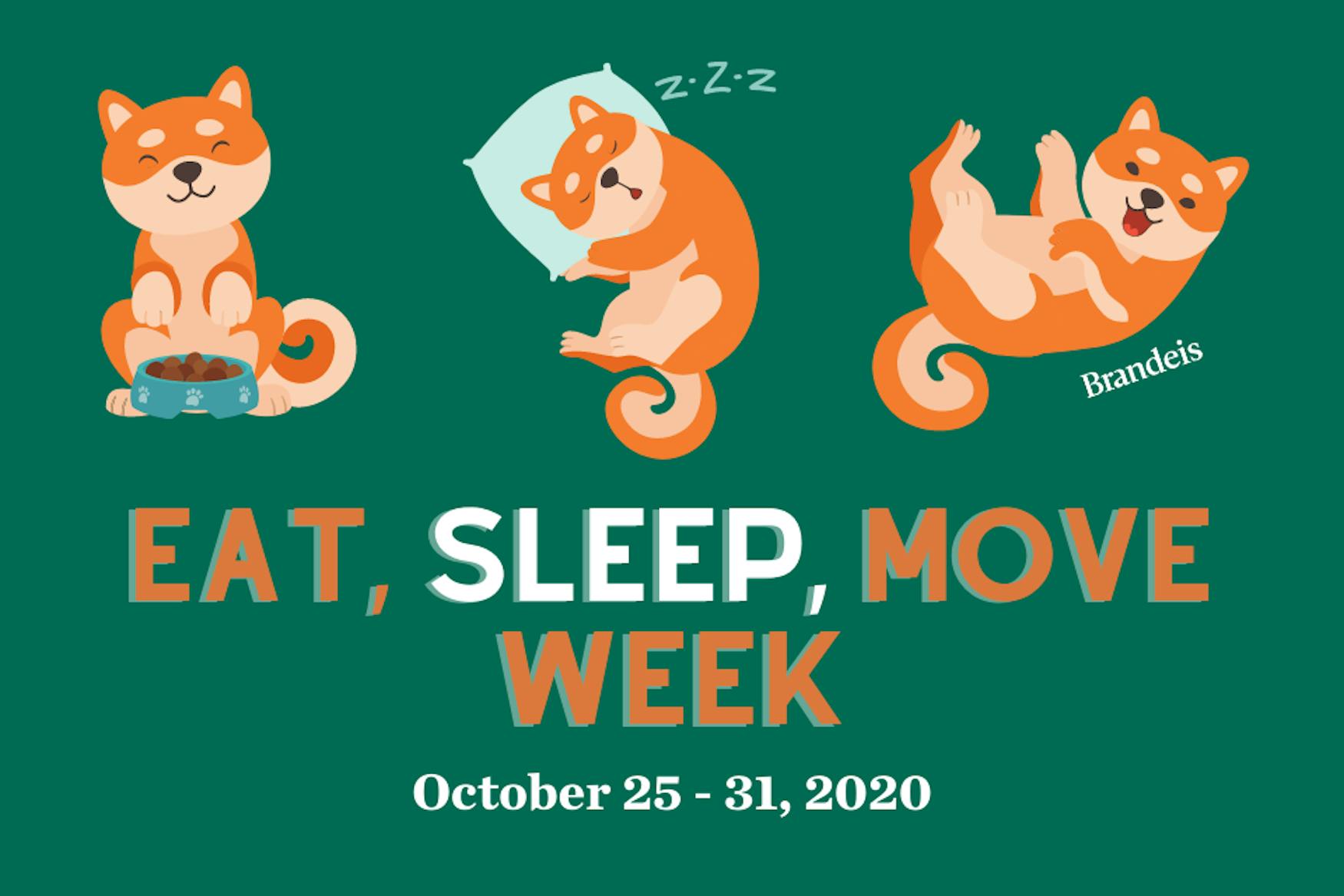Brandeis Wellness Programmers host “Eat, Sleep, Move Week”
The Justice spoke with Leah Berkenwald ’07 about the goals of the program, the events offered and resources available to the Brandeis community.
Starting on Oct. 25, the Brandeis Wellness Programmers hosted a number of events as part of “Eat, Sleep, Move Week,” a program aimed at promoting self-care and wellness. The Wellness Programmers group consists of students and staff from a wide range of offices and clubs on campus, including Health and Wellness Promotion; the Brandeis Counseling Center; the Prevention, Advocacy & Resource Center and the Bridge to Wellness Peer Educators. “We embrace a broad definition of wellness that includes multiple dimensions (physical, emotional, social, spiritual, financial, intellectual, occupational, etc.),” Director of Health Promotion and Wellness Initiatives Leah Berkenwald ’07 wrote in an Oct. 30 email to the Justice. The Brandeis Wellness Programmers typically host multiple events throughout the semester, including Sleep Week, Wellness Week and Stressbusters. Per Berkenwald’s email, “The goals of these weeks are to create and organize programming that highlights wellness challenges of that particular semester or time of year.” For this year in particular, which has been filled with a number of challenges and stress-inducing changes, the Wellness Programmers decided to “return to basics and focus on the fundamentals of self care: eating, sleeping and moving your body,” added Berkenwald.
“Eat, Sleep, Move Week” featured both in-person and virtual workshops and events. The virtual events included a guided meditation over Zoom sponsored by the Center for Spiritual Life, a virtual pajama party with BTW peer educators and HAWP interns and virtual trivia about the major themes of the program. In-person events followed University and public health social distancing and mask-wearing guidelines and focused on the “move” component of the initiative. The Department of Athletics, Recreation and Physical Education, for instance, hosted an in-person obstacle course in one of the Gosman Sports and Convocation Center outdoor tents, and the Brandeis Mountain Club led a “DEIStanced” walk around campus. To encourage participation, the Office of Health and Wellness Promotion gave students one “bingo” for every event they attended. Per their website, “each bingo on your board count[ed] as one entry in a raffle to win a $50 Grubhub gift card.” In organizing and hosting all of these events, Berkenwald shared that “finding the right balance of active engagement and breaks from Zoom” was challenging. “It would be hypocritical to promote wellness and expect everyone to spend extra hours on Zoom for our stress programs!” she said.
In addition to providing wellness tips and helping students de-stress through meditation, exercise and cooking, “Eat, Sleep, Move Week” hoped to introduce students to campus resources that are available throughout the academic year. The Bridge to Wellness Peer Educators, for instance, host weekly “Wednesday live” interviews on Instagram with different members of the Brandeis community. As Berkenwald further pointed out, “BTW peer educators also offer sleep consultations to students who are looking to improve their sleep hygiene.” Additionally, she wrote, “A lot of students are not aware that they can make an appointment with our campus nutritionist by calling the Health Center!” The HAWP website and Brandeis Wellness Facebook and Instagram pages provide more information about the resources available to the Brandeis community in regard to wellness and health.
The COVID-19 pandemic and the subsequent transition to online forms of communication and learning has brought a number of challenges to all. For students who have struggled to find a balance between academics and personal well-being, Berkenwald recommends practicing self-awareness: “We have to attend to the physiological stress response in our bodies so that it doesn't overwhelm us. … When you are feeling stressed, can you take a break? Move your body? Eat something nourishing? FaceTime a friend?” Berkenwald also highlighted the importance of acknowledging “the privilege inherent in self-care and the idea of ‘balance.’" As she pointed out, marginalized communities “carry additional stress as a result of microaggressions and larger systems of oppression in society,” which can make prioritizing and balancing wellness more difficult. Thus, community care becomes crucial, especially in times of crisis. “We can remember to check in with our friends, think about how we can make things easier for our roommates and classmates, help the disadvantaged in our area and embrace a culture of community caring that will support all of us through these difficult times,” she wrote.



Please note All comments are eligible for publication in The Justice.